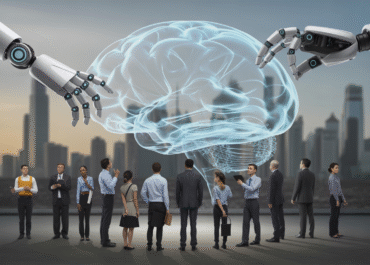Essential AI Platforms and Tools for Modern Developers
The landscape of software development is constantly evolving, with Artificial Intelligence (AI) emerging as a transformative force. For developers, harnessing the power of AI is no longer a luxury but a necessity to stay competitive and efficient. From automating mundane tasks to providing deep insights, AI platforms and tools are revolutionizing how applications are built, tested, and optimized. These innovative solutions empower developers to write cleaner code, identify issues faster, and accelerate project delivery.
AI-Powered Coding Assistants: Your Pair Programmer
Perhaps the most immediate impact of AI in development is seen in intelligent coding assistants. Tools like GitHub Copilot, Tabnine, and Amazon CodeWhisperer act as virtual pair programmers, suggesting code snippets, completing lines, and even generating entire functions based on context and natural language prompts. This significantly reduces boilerplate code, minimizes syntax errors, and allows developers to focus on higher-level problem-solving. These assistants learn from vast repositories of code, providing highly relevant and efficient suggestions, thus boosting productivity and reducing development time.
Code Generation and Analysis Tools: Enhancing Quality and Efficiency
Beyond simple suggestions, AI is now capable of generating substantial blocks of code, especially for repetitive tasks or specific data models. Low-code/no-code platforms, often powered by AI, enable rapid application development by translating user requirements into functional code. Simultaneously, AI-driven code analysis tools, such as those integrated into platforms like SonarQube or specialized static analysis solutions, leverage machine learning to identify potential bugs, security vulnerabilities, and performance bottlenecks. They can even suggest refactorings and best practices, leading to more robust and maintainable software.
Integrated Development Environments (IDEs) with AI Integration
Modern IDEs are increasingly integrating AI capabilities directly into their environments. Popular IDEs like VS Code, IntelliJ IDEA, and PyCharm offer extensions and built-in features that utilize AI for enhanced autocompletion, intelligent debugging, and smart navigation. These integrations provide a seamless experience, bringing the power of AI directly into the developer’s workflow, making coding more intuitive and less prone to errors. AI-powered refactoring suggestions and intelligent search functionalities further streamline the development process.
Machine Learning Frameworks and Cloud AI Platforms
For developers specializing in AI/ML, the foundational tools include robust frameworks and comprehensive cloud platforms. Frameworks like TensorFlow, PyTorch, and scikit-learn provide the building blocks for creating, training, and deploying machine learning models. Complementing these are cloud-based AI platforms such as AWS SageMaker, Google Cloud AI Platform, and Azure Machine Learning. These platforms offer end-to-end solutions for the ML lifecycle, including data labeling, model training, hyperparameter tuning, deployment, and monitoring, abstracting away much of the underlying infrastructure complexity.
Data Preparation and MLOps Tools: The Backbone of AI Development
No AI project can succeed without high-quality data. AI-assisted data preparation tools help developers with data cleaning, transformation, and annotation, crucial steps for training effective models. Furthermore, MLOps (Machine Learning Operations) tools, often integrated into cloud platforms, facilitate the continuous integration, delivery, and deployment of ML models. They ensure that models are consistently updated, monitored for performance degradation, and retrained as needed, bridging the gap between development and production for AI applications.
The proliferation of AI platforms and tools marks a new era for software development. By leveraging these advancements, developers can achieve unprecedented levels of efficiency, code quality, and innovation. As AI continues to evolve, so too will the tools available, further empowering the development community to build the next generation of intelligent applications.


